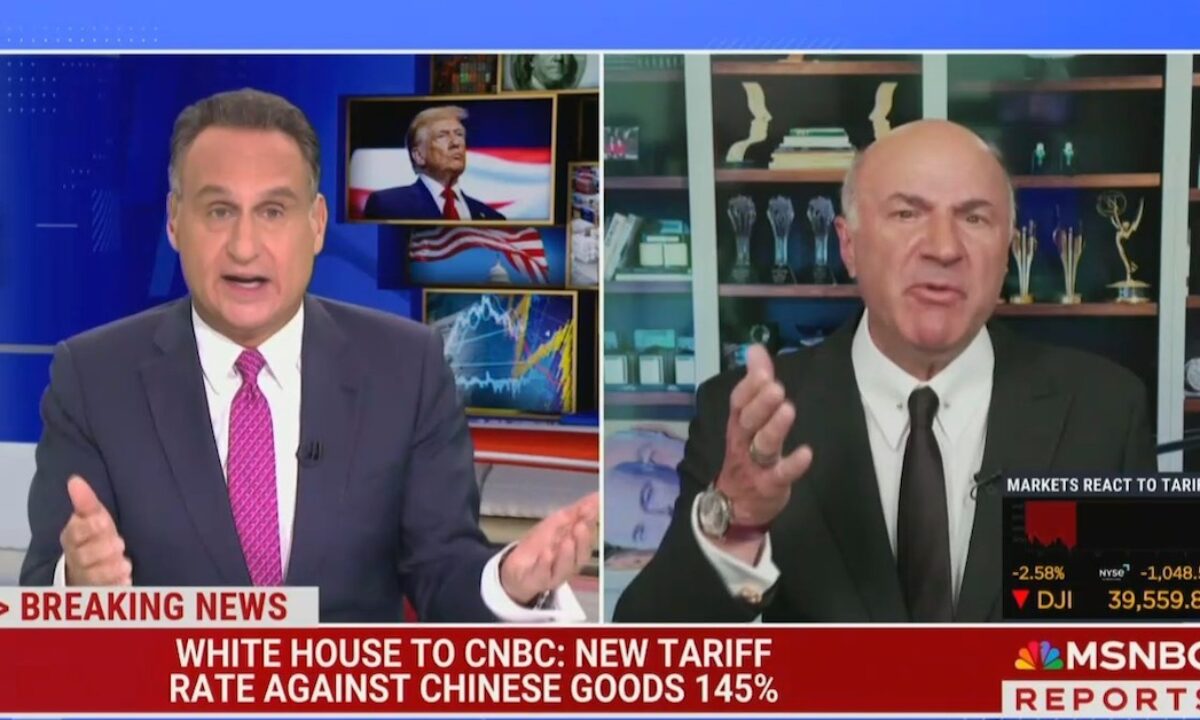Politics
WATCH: Kevin O’Leary Schools MSNBC Host on Trump’s China Policy

“Shark Tank” has and real estate investor Kevin O’Leary doubled down on his praise of President Donald Trump’s aggressive approach to dealing with China in a heated exchange with MSNBC’s José Díaz-Balart.
O’Leary has defended Trump’s decision to slap 104 percent tariffs on all Chinese goods entering the United States, agreeing with Trump’s assertion that China’s communist government has been ripping off the United States and its allies for decades. If anything, O’Leary has argued that the U.S. president’s aggressive approach is not enough.
“104 percent tariffs against China are not enough. I’m advocating 400 percent,” O’Leary said in an interview with CNN earlier this week. “I do business in China. They don’t play by the rules. They’ve been in the WTO for decades. They have never abided by any of the rules they agreed to when they came in for decades. They cheat, they steal, they steal IP, I can’t litigate in their courts.”
“Mr. Wonderful” continued his media circuit on Thursday, when he once again called for an increase during an appearance on MSNBC .“It’s the government. They cheat, they steal, they don’t play by the rules, and I’ve had enough,” O’Leary said. “I don’t care about the volatility. I don’t care if Trump ratchets it up 25 percent a day.”
Díaz-Balart then jumped in to ask whether the “Shark Tank” host was concerned about any adverse effects on consumers. “Wait, wait, wait, Kevin. What do you mean you don’t care about volatility if volatility has a direct impact on us as the consumers?”
O’Leary was undaunted. “Because we have to fix this problem once and for all. It’s killing us. It’s killing small business in America. It’s killing large businesses. All the IP these guys steal… you’re gonna find source code from American companies back four decades ago. These guys don’t play by the rules.”
He went on to blame previous U.S. administrations and European governments for failing to address China’s constant abuses of free trade agreements and adversarial conduct. “It’s enough. We’ve got to solve this problem,” he said. “Now, if we have to squeeze Chinese heads to the wall, so be it.”
O’Leary went on to dismiss Díaz-Balart’s hysteria by pointing to numerous examples of leverage the U.S. has over China in a trade war. “You’ve got Xi. He’s the supreme leader for life. What keeps him in power? Keeping his people employed and fed. Now, when you shut down a factory… you put tens of thousands of people unemployed in China. They take burning torches… up to the castle. That’s a bad outcome for the supreme leader,” he said.
“What’s the largest consumer market on Earth? The United States. Almost 40 percent of all goods consumed worldwide. What’s the largest GDP? 25 or 26 percent of the world? The United States of America. China needs the United States.”
This, O’Leary argued, gives the United States the perfect opportunity to deal with China now, which he views as an absolute necessity. “We can squeeze Chinese — talking about the government, not the people — to comply with the laws and get a level playing field… I don’t care if it takes a little volatility, a little indigestion, a little acid reflux.”

